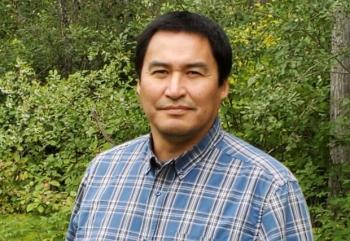Image Caption
Summary
Local Journalism Initiative Reporter
Windspeaker.com
A pending decision by Federal Court Justice Sebasatien Grammond may see Acho Dene Koe First Nation scrambling to recall electoral ballots mailed out to members living outside of the Northwest Territories’ community.
Grammond chided legal counsel for the First Nation when he learned Chief Electoral Officer Mary Beckett had already mailed out ballots for the April 26 chief and council election, although he has yet to rule on whether Floyd Bertrand’s name should be included as a candidate for chief.
“Would it not have been prudent to wait until this hearing a few days later? The election is in more than one month,” said Grammond
“(Beckett) must be aware. She signed an affidavit for this case. She knows there’s an injunction about who’s going to be on the ballot, and to say, ‘Oh, let’s send a ballot anyway’.”
The Nation's co-counsel Perri Ravon said Beckett wasn’t a party to the case and had indicated she needed to take the step now in order to meet deadlines to ensure out-of-community members could vote.
On March 23, Grammond heard about three hours of oral arguments from Ravon, as well as Bertrand’s legal counsel Orlagh O’Kelly.
Bertrand is asking for the court to direct the chief electoral officer to add his name to the ballot. When he submitted his nomination package for the position of chief, Beckett denied his nomination stating he had an outstanding debt owing to the First Nation.
O’Kelly stressed that Bertrand did not want to delay the election. Acho Dene Koe First Nation chief and council had already postponed the election twice. The last election was held in May 2017.
Ravon argued that as Bertrand did not want to delay the election, the election should go ahead with the existing candidates and Bertrand could appeal the outcome of the election.
However, O’Kelly argued that although the Nation claimed to have a custom code election it had never been ratified. As well, that 2007 custom code that chief and council were using had no mechanism in place for Bertrand to appeal the election results.
She also put to the court that the appeal official said he had no jurisdiction to rule on an appeal.
Ravon said the appeal official did not deny he had jurisdiction, but said he would exercise his jurisdiction only after the court made its ruling.
“If I’m denying the injunction, does that mean that he will then consider Mr. Bertrand’s appeal?” said Grammond.
“I didn’t read that in this way. I think it’s pretty much over in the sense that he says. ‘I’m not hearing this appeal’ and I’m not sure there will be any opportunity for him to, if I were to dismiss the injunction today or tomorrow or that he would resume consideration of Mr. Bertrand’s appeal. Perhaps he would hear an appeal after the election. That’s different.”
O’Kelly also argued breach of Bertrand’s procedural fairness rights, irreparable harm to his reputation, and balance of convenience, in that, if his name is not added it could call the election results into question.
O’Kelly held that despite Bertrand not submitting nomination papers to run for election as chief in 2008 and 2017, because of his outstanding debt, this time was different.
She said his procedural fairness rights were breached because he was not provided with sufficient time to respond to documents presented to him by Beckett that the debt of approximately $27,000 was still outstanding.
O’Kelly also held that the decision to exclude Bertrand was “almost like cherry picking.” She said debt was only one reason stated in the 2007 election custom code, but seemed to be the only reason being enforced with potential candidates.
Grammond pointed out that Bertrand’s continued inability to run because of the debt owing was evidence of past practise.
“At some point in time does that not create a custom if that is not challenged? At what point practise crystallizes into a custom?” said Grammond.
“Mr. Bertrand has been a bee in their bonnet for the past two years and then he’s now being excluded from running from office and we would say unfairly and unlawfully so based on their own custom,” said O’Kelly.
Irreparable harm was being done to Bertrand’s reputation, she said, because he was being painted by his “political rival” as untrustworthy because of the debt he owed.
O’Kelly also argued that there would be irreparable harm done to the community if the outcome of the election were contested.
“I don’t actually decide the issue. I grant an injunction for his name to be added to the ballot. He wins the election then what would prevent the defeated candidate from attacking the validity of the election by saying that he was not entitled to run? So would my decision preclude a subsequent challenge? I’m trying to map out the implications in my head,” said Grammond.
“Granting this injunction would not resolve uncertainty or avoid uncertainty,” said Ravon, who also pointed out that the court had the ability to quash an election after the fact.
Grammond said he would “endeavour to issue a decision very quickly.”
Bertrand is also engaged in another court action against the Acho Dene Koe First Nation and Canada. He is challenging chief and council’s decision to postpone two elections and using the First Nations Election Cancellation and Postponement Regulations enacted by Indigenous Services Canada. That hearing took place March 22.

